Primary Types of Single-Tenant Net-Leased Properties
Published on Nov. 11, 2011
1. Necessity Retail
2. Fast Food Restaurants
3. Dollar Stores/Discount Retailers
4. Gas Stations
5. Business/Communications
6. Vehicle Repair/Parts
7. Casual and Budget Dining
8. Investment-Grade NNN Office
9. Updated Property Providers and Tenant List
This article provides a general description of the primary types of single-tenant triple-net assets investors encounter in the market and outlines a road map of the trade-offs of each asset type. These are general guidelines. A customized evaluation will be implemented when you build a portfolio in this asset class. Credit ratings may apply to parent-backed, corporate leases. Ratings were as of 2009 or the spring of 2010; these ratings may change over time.
Whether you are looking for a NNN investment to complete a 1031 exchange or simply to build a longer-term stable income portfolio, it is important to choose the right tenant, location, and lease structure. Given the fragile nature of our current economy, make sure that your tenant is in the right industry and business to be able to weather or even excel in the economic storm.
In order to help clients make informed investment decisions, we provide investors with property lists and advisory services tailored to their investment objectives and needs. Additionally, we have created tenant lists that include many major companies within each of the categories listed below and in other categories not included in this article. Please contact us if you would like more information.
Necessity Retail
Necessity retail primarily includes drugstores, pharmacies, grocery stores, and smaller convenience stores. These NNN properties often provide the good mix of stable, corporate- backed tenants and necessity retail inventory that consumers require, regardless of the economic circumstances. Consumer necessities such as food and medicine are typically least affected in an economic downturn; thus, the stores that inventory and sell those items tend to remain fairly stable.
Typical Lease: Many necessity retail NNN assets are tenanted directly by the parent corporations. Corporate-backed leases are more regularly encountered in this type of NNN space than in the other categories. Most lease structures are initially in excess of 10 years, and there are many necessity retail corporations with investment-grade credit ratings. Long-term, stable leases may be found in the necessity retail NNN space. However, necessity retail leases can often provide the tenant with extremely favorable renewal options--sometimes extending beyond 40- 50 years--without adequate "lease bumps."
 "Best in Class": While Walgreens can provide a very strong lease with a corporate credit rating of A+, it also has a lease structure without "lease bumps." Walgreens leases are the usual suspects for these types of overly tenant-friendly renewal options. A Walgreens lease term may be from 25-75 years without significant lease payment increases. CVS leases may provide a better alternative, as they often include regular lease bumps in the fixed term of the lease. They typically include long-term renewal options with due increases in the lease payments. CVS has an investment-grade credit rating of BBB+.
"Best in Class": While Walgreens can provide a very strong lease with a corporate credit rating of A+, it also has a lease structure without "lease bumps." Walgreens leases are the usual suspects for these types of overly tenant-friendly renewal options. A Walgreens lease term may be from 25-75 years without significant lease payment increases. CVS leases may provide a better alternative, as they often include regular lease bumps in the fixed term of the lease. They typically include long-term renewal options with due increases in the lease payments. CVS has an investment-grade credit rating of BBB+.
A 7-Eleven location that is corporate backed will carry an investment-grade rating of A. There are also many grocery store conglomerates that carry an investment-grade credit rating. The purchase price of these larger grocery store anchor assets may be prohibitive to individual owners who wish to be diversified into multiple assets, so for most investors, CVS and 7-Eleven assets may be better selections in this particular category.
Fast Food Restaurants
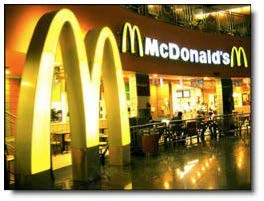 Fast food restaurants tend to do relatively well in both good and bad economic times. When the economy suffers, fast food traffic tends to remain stable. Many chains highlight discounted menu items, and consumers attempt to eat more inexpensively by switching to fast food from healthier foods that may carry a higher price. Many families adjust from "going out" at a nice, sit-down restaurant to "going out" for fast food when budgets get tighter. Investors should target well-known, national chains that regularly offer a "value" or "discount" menu for consumers.
Fast food restaurants tend to do relatively well in both good and bad economic times. When the economy suffers, fast food traffic tends to remain stable. Many chains highlight discounted menu items, and consumers attempt to eat more inexpensively by switching to fast food from healthier foods that may carry a higher price. Many families adjust from "going out" at a nice, sit-down restaurant to "going out" for fast food when budgets get tighter. Investors should target well-known, national chains that regularly offer a "value" or "discount" menu for consumers.
Typical Lease: Most fast food NNN assets are tenanted by regional franchise owners rather than the parent corporations. While franchise cap rates may be much higher, providing a higher cash flow to the investor, the credit risk can be increased considerably when the corporation is not backing the lease. Corporate-backed leases are often more expensive and may have shorter lease terms than franchise-backed leases. However, multiple-restaurant franchise owners tend to run more profitable locations than corporate-backed leases and carry more favorable lease terms. Investors deciding between franchise-and corporate-backed leases must take into account the location, lease terms, profitability of the restaurant, and overall success of the brand--both nationally and locally.
 "Best in Class": Leases backed by the McDonald's corporation can provide a stable investment since McDonald's has a corporate credit rating of A.
"Best in Class": Leases backed by the McDonald's corporation can provide a stable investment since McDonald's has a corporate credit rating of A.
KFC, Taco Bell, Pizza Hut, and Long John Silver's brands are owned by YUM! Brands, and many of these restaurants are corporate backed. YUM! Brands' corporate credit rating is BBB-.
It should be pointed out that the chains listed above have both corporate-backed and franchise-backed locations--so it is important to distinguish between the guarantors of the leases when looking for potential investments.
Strong franchise-backed options exist in many locations and within most major brands. We work with institutional real estate firms that specialize in building portfolios of fast food, fast casual, budget dining, and quick-service-style restaurants.
Pei Wei, In-N-Out, and White Castle chains are owned by private firms that typically do not franchise. These fast food or quick service chains also can provide a strong lease option because their parent corporations stand behind the lease and typically have little debt. Though there are always exceptions to the rule, it is often best to avoid fast food restaurants backed by corporations with credit ratings less than investment grade--indicating current or future financial weakness--or backed by single- or limited-location franchise operators.
Dollar Stores/Discount Retailers
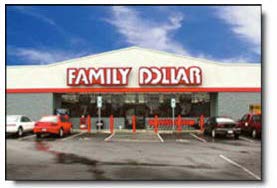 Dollar stores and discount retailers tend to perform well in difficult economic times, as consumers are geared towards buying "on sale" or "reduced price" items. Discount stores serve consumer basic needs of food, clothes, and home goods, and some brands provide "higher-end" retail goods at wholesale prices. Discount stores perform well during economic distress because consumer mentality trends towards thrift and savings-- and because wholesale inventory becomes less expensive to acquire as production demand decreases and other stores liquidate their inventory or go out of business. This perfect storm of cheaper inventory and increased consumer demand allows most discount retailers to widen profit margins and increase earnings.
Dollar stores and discount retailers tend to perform well in difficult economic times, as consumers are geared towards buying "on sale" or "reduced price" items. Discount stores serve consumer basic needs of food, clothes, and home goods, and some brands provide "higher-end" retail goods at wholesale prices. Discount stores perform well during economic distress because consumer mentality trends towards thrift and savings-- and because wholesale inventory becomes less expensive to acquire as production demand decreases and other stores liquidate their inventory or go out of business. This perfect storm of cheaper inventory and increased consumer demand allows most discount retailers to widen profit margins and increase earnings.
Typical Lease: Most discount retail locations are corporate-backed leases with initial 10-20- year terms that include multiple renewal options thereafter. Lease bumps range from 0% until renewal options to as high as 1-2.5% per year. Most leases are double-net or triple-net, shifting the majority of the ongoing costs to the tenant rather than the landlord. With some leases, landlords participate in a small percentage of sales revenue above a certain base rent. Depending on the success of the store, revenue sharing can provide additional upside to the discount store investor.
"Best in Class": Discount stores provide investors with a larger selection of tenants that maintain an investment-grade credit rating. Ross (BBB), Kohl's (BBB+), and Big Lots (BBB-) are some of the strongest tenants, each with an investment-grade credit rating and a strong track record of good performance in both good and bad economic times. AJWright, T.J. Maxx, and Marshalls are all owned by TJX Companies, with an A credit rating. Costco (A), Wal-Mart (AA), and Sam's Club (AA, owned by Wal-Mart) are much larger discount and wholesale retailers that can provide exceptional stability for those clients who can afford the higher prices.
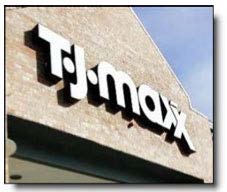 Dollar stores provide investors with smaller-footprint, standalone locations that are often much less expensive than the discount store locations. Unlike the discount retailers, none of the major dollar store tenants maintain an investment-grade credit rating. There are four major corporations in the space: Family Dollar, Dollar Tree, Dollar General (BB-), and 99 Cents Only. The rest of the dollar store space is filled with individual or limited-location franchises or much smaller, private corporations. Should a client invest in the dollar store space, Family Dollar and Dollar Tree have little debt other than their accounts payable that are matched to their current assets and accounts receivable. Dollar General maintains much greater debt levels. 99 Cents Only is a much smaller corporation, though its debt levels are similar to those of Family Dollar and Dollar Tree.
Dollar stores provide investors with smaller-footprint, standalone locations that are often much less expensive than the discount store locations. Unlike the discount retailers, none of the major dollar store tenants maintain an investment-grade credit rating. There are four major corporations in the space: Family Dollar, Dollar Tree, Dollar General (BB-), and 99 Cents Only. The rest of the dollar store space is filled with individual or limited-location franchises or much smaller, private corporations. Should a client invest in the dollar store space, Family Dollar and Dollar Tree have little debt other than their accounts payable that are matched to their current assets and accounts receivable. Dollar General maintains much greater debt levels. 99 Cents Only is a much smaller corporation, though its debt levels are similar to those of Family Dollar and Dollar Tree.
Gas Stations
Gas stations perform relatively well in any economic circumstance, as they provide an inflation-hedged, necessity-driven commodity. While gas consumption may decrease in an economic downturn, it tends to maintain a level of demand that supports the operating costs of the standalone store location. The convenience retail business of gas stations (the food and beverages) drives additional profits for particular locations. Gas stations have large selections of investment-grade-credit tenants. Individual locations also can be backed by individual franchise owners.
Typical Lease: Gas station leases are typically 5 to 12 years in length with many shorter renewal options thereafter. The leases are shorter than those in other retail asset classes to ensure that the fixed costs of the lease are sustainable by commodity prices in the long run. Lease bumps range from 1-3% per year, and some leases are tied directly to (Consumer Price Index). Though it is often standard in the lease structure, the corporation delivering the fuel should be responsible for all environmental liabilities associated with the transportation, refilling, and storage of the fuel at the individual location. Corporate-backed leases are preferable to take advantage of the strength of the corporate balance sheet in the case of a short-term drop in commodity prices that might otherwise affect smaller, regional franchises.
 "Best in Class": ExxonMobil has the highest investment-grade rating of AAA, and Chevron, ARCO, Shell, Texaco, and BP all have credit ratings of AA. Union 76 and ConocoPhillips maintain an A rating, and Valero is rated BBB. ARCO is sometimes located in poorer neighborhoods, as they provide discount-priced gasoline if customers are able to pay by cash or debit. Each of these corporations can provide a strong tenant and a good, longer-term investment if the lease parameters are set up appropriately.
"Best in Class": ExxonMobil has the highest investment-grade rating of AAA, and Chevron, ARCO, Shell, Texaco, and BP all have credit ratings of AA. Union 76 and ConocoPhillips maintain an A rating, and Valero is rated BBB. ARCO is sometimes located in poorer neighborhoods, as they provide discount-priced gasoline if customers are able to pay by cash or debit. Each of these corporations can provide a strong tenant and a good, longer-term investment if the lease parameters are set up appropriately.
Business/Communications
Corporations that provide business/communications services can be another source of stability through economically volatile times. Cell phone, landline, internet, and satellite services deliver both consumer and business needs that remain relatively stable. National, private-sector mail carriers often have strong credit ratings and may offer retail and distribution facility locations to meet investors' needs.
 Typical Lease: Communication and mail carrier tenants usually offer leases of 10-20 years with extended 5-year renewal options thereafter. Most leases are NNN and provide modest lease bumps throughout the lease term. Most major brand locations have corporate-backed leases with few franchises available.
Typical Lease: Communication and mail carrier tenants usually offer leases of 10-20 years with extended 5-year renewal options thereafter. Most leases are NNN and provide modest lease bumps throughout the lease term. Most major brand locations have corporate-backed leases with few franchises available.
"Best in Class": UPS offers the highest credit rating of this category of NNN properties with a credit rating of AA-. Verizon and AT&T currently have credit ratings of A. FedEx and Kinkos are both owned by the FedEx Corporation, which has a credit rating of BBB. Each of these corporations may provide stability within the lease term. Most AT&T and Verizon locations support fixed lease terms of 10 years with renewal options thereafter, and they choose higher-profile, high-traffic locations that can be easier to fill, should the primary tenant choose not to renew. UPS and FedEx often have longer original lease terms, but they do not always select the most heavily trafficked areas. T-Mobile has a credit rating of BBB+ but has underperformed against AT&T and Verizon in the U.S. as a cell phone carrier and may not be an ideal tenant choice for longer- term stability.
Vehicle Repair/Parts
Businesses that provide vehicle repairs, tune-ups, fluid changes, and parts are common tenants in NNN properties. Unlike other categories of NNN properties, corporations that provide vehicle repairs or parts do not all benefit from market downturns. Discount automotive part stores may do well in harder economic times as consumers are forced to attempt self-repairs that otherwise would have been handled by dealers or independent mechanics. However, as automobiles have made technological advances in the last decade, it has become more difficult for consumers to self-repair mechanical or electrical problems. It is important to select businesses that provide automotive goods and services that are ongoing with tenants backed by investment-grade corporations.
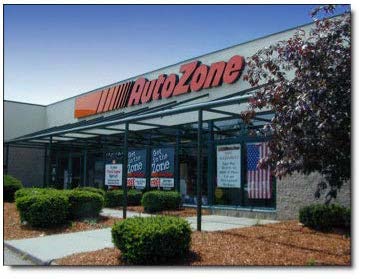 Typical Lease: Vehicle-related tenants typically provide leases with terms from 10- 20 years that are NN or NNN in structure. Renewal options of 5 years or more are common in the original lease. Lease bumps are often 1-3% per year. Due to obsolescence factors, especially for those businesses that provide parts, it is important for investors to ensure that they are participating in corporate-backed rather than franchise- backed leases. The landscape of vehicle repair and parts stores is filled with franchises, so it can be difficult to locate the right type of tenant. As with gas stations, environmental issues may arise with vehicle service facilities. An investor must ensure that these liabilities fall entirely on the corporation providing the service within the lease.
Typical Lease: Vehicle-related tenants typically provide leases with terms from 10- 20 years that are NN or NNN in structure. Renewal options of 5 years or more are common in the original lease. Lease bumps are often 1-3% per year. Due to obsolescence factors, especially for those businesses that provide parts, it is important for investors to ensure that they are participating in corporate-backed rather than franchise- backed leases. The landscape of vehicle repair and parts stores is filled with franchises, so it can be difficult to locate the right type of tenant. As with gas stations, environmental issues may arise with vehicle service facilities. An investor must ensure that these liabilities fall entirely on the corporation providing the service within the lease.
"Best in Class": AutoZone is rated BBB, and it is the only auto parts store that we would recommend as a tenant in NNN real estate. Jiffy Lube, owned by Shell Oil Co. (which has a credit rating of AA), provides an ongoing service that consumers require, regardless of the economy's health. Jiffy Lube can be a strong investment if the location is backed by the parent corporation.
Casual and Budget Dining
Casual and budget dining restaurants may perform similarly to fast food restaurants. They seek to provide the consumer with inexpensive meals and a cheaper way to "go out." However, casual and budget dining chains vary significantly in their overall performance. Investors must be selective in this asset class, as many chains have struggling parent corporations and, as with fast food, certain locations are better managed by franchise operators than the parent company.
Typical Lease: Most leases in this space are 15-20-year triple-net leases with renewal options tied to the end of the fixed term. Lease bumps tend to be at least 1-3% per year. In most major restaurant chains, there are both franchise and corporate-backed locations.
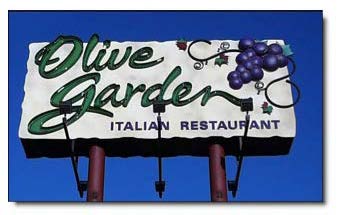 "Best in Class": Olive Garden, Red Lobster, and LongHorn Steakhouses are all owned by Darden Restaurants, which has a credit rating of BBB. On The Border, Romano's Macaroni Grill, and Chili's are all owned by Brinker International, which has a credit rating of BBB-. These companies and their various brands have performed relatively well through the economic downturn. Companies like Denny's and IHOP have also performed relatively well, but the parent corporations have below-investment-grade credit, and their individual locations tend to be better managed by larger franchise operators.
"Best in Class": Olive Garden, Red Lobster, and LongHorn Steakhouses are all owned by Darden Restaurants, which has a credit rating of BBB. On The Border, Romano's Macaroni Grill, and Chili's are all owned by Brinker International, which has a credit rating of BBB-. These companies and their various brands have performed relatively well through the economic downturn. Companies like Denny's and IHOP have also performed relatively well, but the parent corporations have below-investment-grade credit, and their individual locations tend to be better managed by larger franchise operators.
Investment-Grade NNN Office
Investment-grade NNN office includes corporate headquarters, distribution facilities, and service locations of large companies with strong, investment-grade credit rating that do not typically operate in retail shopping locations. Examples include healthcare companies, pharmaceutical companies, technology providers, business-to-business services, consumer goods manufacturing facilities, etc.
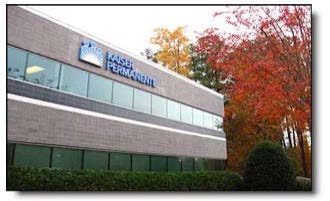 Typical Lease: These leases vary but typically include lease terms in excess of 10 years with a number of predetermined renewal options. Lease bumps tend to be small (1-2% per year) or flat, depending on the importance of the location.
Typical Lease: These leases vary but typically include lease terms in excess of 10 years with a number of predetermined renewal options. Lease bumps tend to be small (1-2% per year) or flat, depending on the importance of the location.
"Best in Class": Healthcare providers and pharmaceutical companies with investment-grade credit ratings are often the best tenants to have in NNN real estate. Like food and gasoline, healthcare and pharmaceuticals are ongoing necessities that consumers utilize throughout difficult economic times. Corporate headquarters of major healthcare and pharmaceutical companies are preferred.
Updated Property Providers and Tenant List
Please feel free to contact us at clientservices@jrwinvestments.com or by phone at (877) 579-1031 if you would like us to send you custom property lists as well as comprehensive tenant information lists. Tenant information lists include the parent corporation of most major retail tenants, whether or not they are public, their corporate credit rating, whether or not they are regularly franchised or backed by corporate leases, and the number of locations they have throughout the country or the world.
